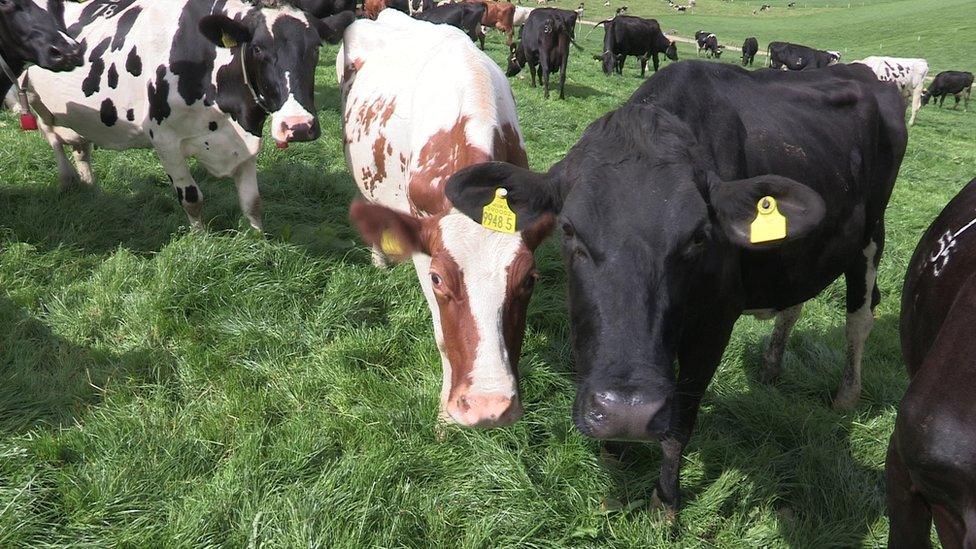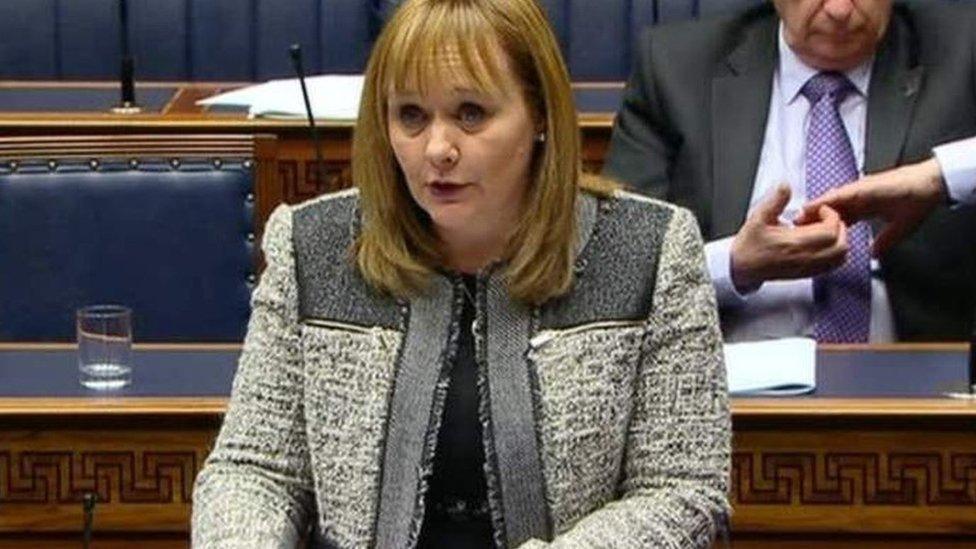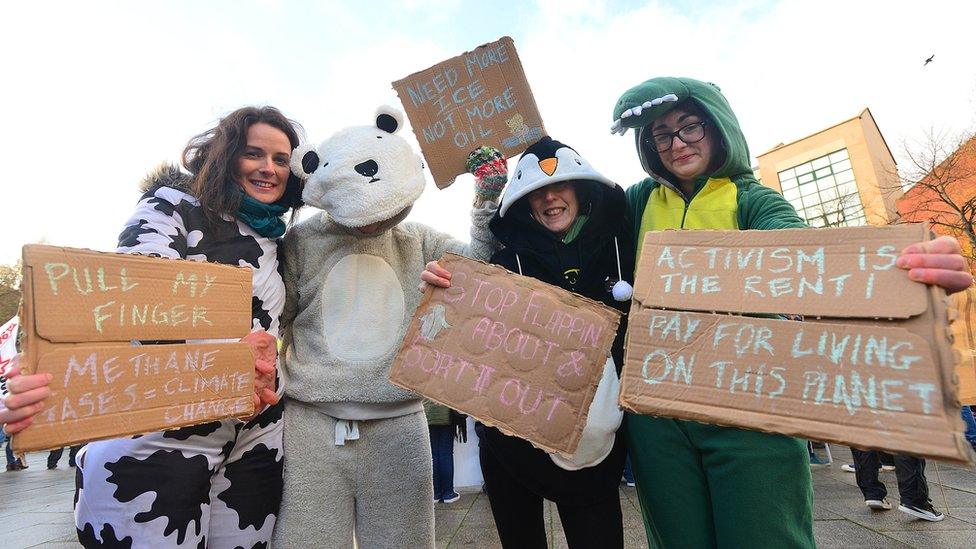NI farmers 'must adapt to hit climate change goal'
- Published
- comments

Agriculture is the biggest emitter of greenhouse emissions in Northern Ireland, accounting for 29%
Northern Ireland's farmers must adapt along with others in the UK to help reach a key target on climate change, a government advisory body has said.
Suggestions include planting a fifth of UK farmland with trees.
Livestock numbers should be reduced, as should the consumption of beef and dairy, a new report suggests.
Its recommendations also include restoring peatlands, while the 13.6m tonnes of food thrown away in the UK every year should be cut by a fifth.
The recommendations are in the first report by the Committee on Climate Change on how the sector must adapt to help achieve a government target of net zero carbon by 2050.
Northern Ireland was the region which would benefit most from extensive tree planting, the report's authors said.
NI farmers 'must adapt to hit climate change goal'
If all the measures were adopted the UK's emissions from agriculture could be cut by two-thirds, they added.
That would bring them down to 21MtCO2 by 2050 and deliver an £80bn benefit.
The report envisages that livestock numbers would fall by 10% and meat and dairy consumption by 20%.
Agriculture accounts for 12% of total UK greenhouse gas emissions.
In Northern Ireland the figure is 27% because of our economic reliance on farming.
The Committee on Climate Change said it wanted to see farming practices that were more productive, but would also help cut greenhouse gas emissions.
These included more careful use of fertilisers, better management of soils and adapting animal feeds to cut methane emissions from livestock.
The report suggests extensive tree planting could be funded by a levy on emitting industries like fossil fuel companies and airlines.
The CCC's chief executive Chris Stark said it was important to recognise that UK pasture-based livestock production had one of the lowest greenhouse carbon footprints of any such system in the world.
But he said it was also the case that emissions from farming overall would have to come down.
"That is a conundrum and it involves us reducing by a small amount the numbers of sheep and cows that graze on grassland."
But he said a future trade policy would have to ensure that the government did not simply fill the gap with cheap imported produce which had a much bigger carbon footprint.
"It's very very important that we manage that properly with a good trade policy after we leave the European Union," he said.
- Published25 May 2016

- Published29 November 2015
